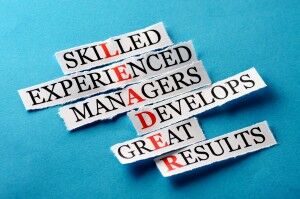By Steven Hansen, PCC
The business environment has changed: it is now more complex, volatile and unpredictable than ever before. Executives are seeing the new normal as more uncertain, complex and ambiguous. As business changes, so do the leadership competencies needed to be successful. The skills needed for leadership require more adaptive thinking about complexity. The competencies most required in this environment are adaptability, self-awareness, working across organizational boundaries, collaboration, and network thinking.
The new normal is no longer just a leadership challenge, it’s a leader development challenge. I assert this is a critical component to developing strong leaders, and why coaching is so powerful for those seeking to navigate our more complex business atmosphere.
The old/current model for leadership change is based on horizontal development; developing new skills, abilities and behaviors. While these steps are valuable they are often not enough to meet the complexities of today. What is now required is vertical development; how to “make sense” of what is encountered. This is the difference between, say, knowing the details of accounting (horizontal) and knowing how to solve financial challenges in an organization because you are able to see the issues from a higher level (vertical). The first set of skills is important in your job as CFO (you have to understand accounting), but the second set of skills makes the difference between a manager of details and an organizational leader.
This focus on vertical development references the “developmental stages” that people move through as they learn to deal with a progressively more complex world. How to “make better sense” of what is encountered correlates with higher levels of effectiveness.
As coaches, this vertical development is our primary goal with clients. We listen for the sense-making that our clients are utilizing and help them elevate their level of thinking to look at their current challenges in a different light.
Robert Kegan, a Harvard professor, has researched and created an adult development model that is useful here. In business, we tend to see three levels of his five level model:
- Socialized mind: where we are shaped by the expectations of others.
- Self-authoring mind: where we have developed our own beliefs and values.
- Self-transforming mind: where we can move beyond our beliefs and values to hold a larger view which includes contradictions and ambiguities.
At each level of development, we increase our ability to deal with more complex problem solving, to interact with our environment with a bigger mind so to speak.
Moving from one stage to another usually occurs when one is experiencing challenges that can’t be solved with current abilities and one is thus “pulled” up to the next level. This can be seen as a three step process.
- First – one becomes aware that there is a different way of “making sense” of what’s possible
- Second – old assumptions are analyzed and challenged.
- Third – one begins to move toward the new way of looking at the challenge and starts to “make sense” from that new perspective.
If we are looking to develop a higher level of thinking in others, we can begin to help by asking questions about current assumptions and what other points of view or reference points are possible. We do this frequently as coaches. We ask things of our clients like how are those assumptions keeping them stuck with current solutions that won’t solve the challenge at hand? The object is to help them move from current thinking to the expanded sense-making necessary for effective problem solving.
This process is not orderly by any means. In fact, a person may be at one development level in a certain area of life and yet a different level in another area. The point is to adapt to each complexity with the needed level of development.
“The coming decades will increasingly see managers take on challenges that require them to engage in: strategic thinking, collaboration, systems thinking, leading change and having ‘comfort with ambiguity.’” ~ Robert Keagan
To navigate these increasingly challenging business environments, we must all be striving to achieve our next level of development. As coaches, this is our constant mission with our clients.
Of course, you can tackle some of it yourself too. For more on this topic, see one of our favorite books: Immunity to Change by Robert Kgan and Lisa Lahey. Great examples and exercises to assist you with this topic!
For assistance in reaching a new level of developmental thinking for yourself or your staff, please contact us for a complimentary consultation.

